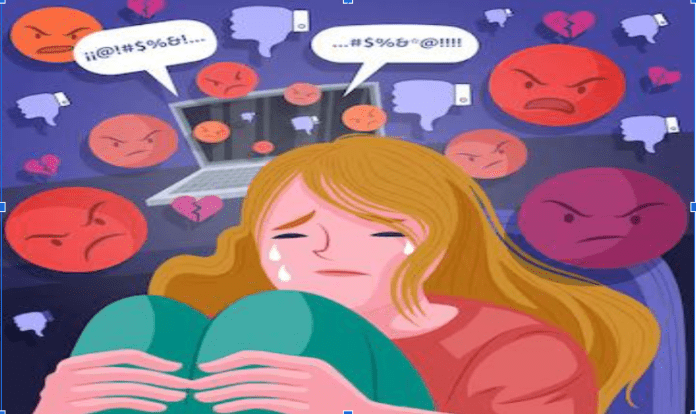Overcoming Emotional Abuse
Emotional abuse, also known as psychological abuse, is a pattern of behavior where one person in a relationship consistently undermines the emotional well-being of the other person. This type of abuse can occur in any relationship, including romantic partnerships, friendships, and family dynamics. Emotional abuse can be subtle and difficult to recognize, as it often lacks physical evidence. However, the effects of emotional abuse can be just as damaging as physical abuse, leading to mental health issues, low self-esteem, and even trauma. ( How do Senior Living Communities Maintain the Health of Older Adults? )
Signs of Emotional Abuse
Some common signs of emotional abuse in a relationship are:
- Belittling and humiliation: The abuser may frequently ridicule or demean the victim, making them feel worthless or stupid.
- Isolation: The perpetrator may try to keep the victim away from other people by banning them from visiting friends and family or even by allowing them to stay at home.
- Gaslighting: The abuser may manipulate the victim’s reality, making them question their memory, perception, and sanity.
- Threats and intimidation: To influence the victim’s behaviour, the abuser may make threats of harm to the victim, their loved ones, or even themselves.
- emotional repression: As a method of control, the abuser may restrict support, affection, or conversation.
- Blaming and shaming: The abuser may constantly blame the victim for their own actions, making the victim feel responsible for the abuser’s behavior.
- Manipulation: The abuser may use guilt, lies, or other tactics to manipulate the victim into doing what they want.
How to Recognize Emotional Abuse
To recognize emotional abuse in your relationship, consider the following questions:
- Does your partner frequently criticize or belittle you?
- Do you experience a sense of being on edge around your partner?
- Are you often blamed for your partner’s actions or emotions?
- Do you feel isolated from friends or family due to your partner’s behavior?
If you answer “yes” to any of these questions, you may be experiencing emotional abuse.
Steps to Take if You Are Experiencing Emotional Abuse
- Recognise the abuse: Recognise that the behaviour you are encountering is neither normal or appropriate. Understand that emotional abuse can have serious long-term effects on your mental health and well-being.
- Seek support: Reach out to trusted friends, “online counsellor” family members, or a professional therapist to discuss your situation. They may provide guidance, emotional support, and resources to help you.
- Develop a safety plan: If you feel that your safety or the safety of others is at risk, create a plan to protect yourself. This may include identifying safe places to go, important phone numbers to have on hand, and a plan for how to leave the relationship if necessary.
- If any of the following abuse occurs: It’s important to prioritize your well-being and recognize that you deserve to be in a healthy, respectful, and loving partnership.
Remember, emotional abuse is never your fault, and you have the right to be treated with respect and care in all of your relationships. Seeking help and support from friends, family, and professionals can provide the resources and guidance needed to navigate this difficult situation. ( Also Read About – Superfoods You Should Swear by for Healthy Skin )
Here are some tips to help overcome emotional abuse:
• Recognize that it was not your fault. Emotional abuse is never the victim’s fault. Do not hold yourself responsible for the abuse you experienced.
• Build your self-esteem. Take part in activities you find top psychologist in India enjoyable and that boost your self-esteem. Pursue hobbies, interests, exercise, art, music, etc. Practice positive self-talk.
• Set boundaries. To safeguard yourself from abuse in the future, learn to set firm boundaries. Do not feel guilty for saying no or standing up for yourself.
• Seek online counseling or therapy for emotional abuse. Speaking to a licensed counselor or therapist can be very helpful for overcoming emotional abuse. Counseling can help you work through difficult emotions, reframe thoughts, and build coping skills.
• Challenge negative beliefs. Try to identify negative or abusive beliefs instilled in you and challenge them with more positive and realistic thoughts. The abuse was not deserved or deserved.
• Practice self-care. Make sure to engage in regular self-care practices like yoga, meditation, journaling, spending time in nature, reducing stress, following a healthy diet, limiting alcohol/caffeine, etc. Self-care is essential to healing.
• Rebuild social connections. Surround yourself with a strong network of caring people who support and uplift you. Join social groups or clubs, engage in activities where you can connect with like-minded people and cultivate meaningful relationships.
• Start setting small, achievable goals. Don’t feel overwhelmed as you work to overcome the effects of abuse. Set small concrete goals and acknowledge your wins, no matter how small. Build momentum over time.
• Consider speaking to a support group. Sharing your experiences with others who have been in similar situations can help you feel less alone and gain new insights and tips. Identify local or online support organisations.
• Stand up for your rights. Do not allow others to continue mistreating you once you have recognized you deserve better. Trust your instincts and set firm boundaries or remove people from your life who continue to disrespect you.
• Remember that healing takes time. Overcoming emotional abuse is a journey. Be patient with yourself and maintain a commitment to your wellbeing and progress over the long run. You will start to feel better each and every day.
















